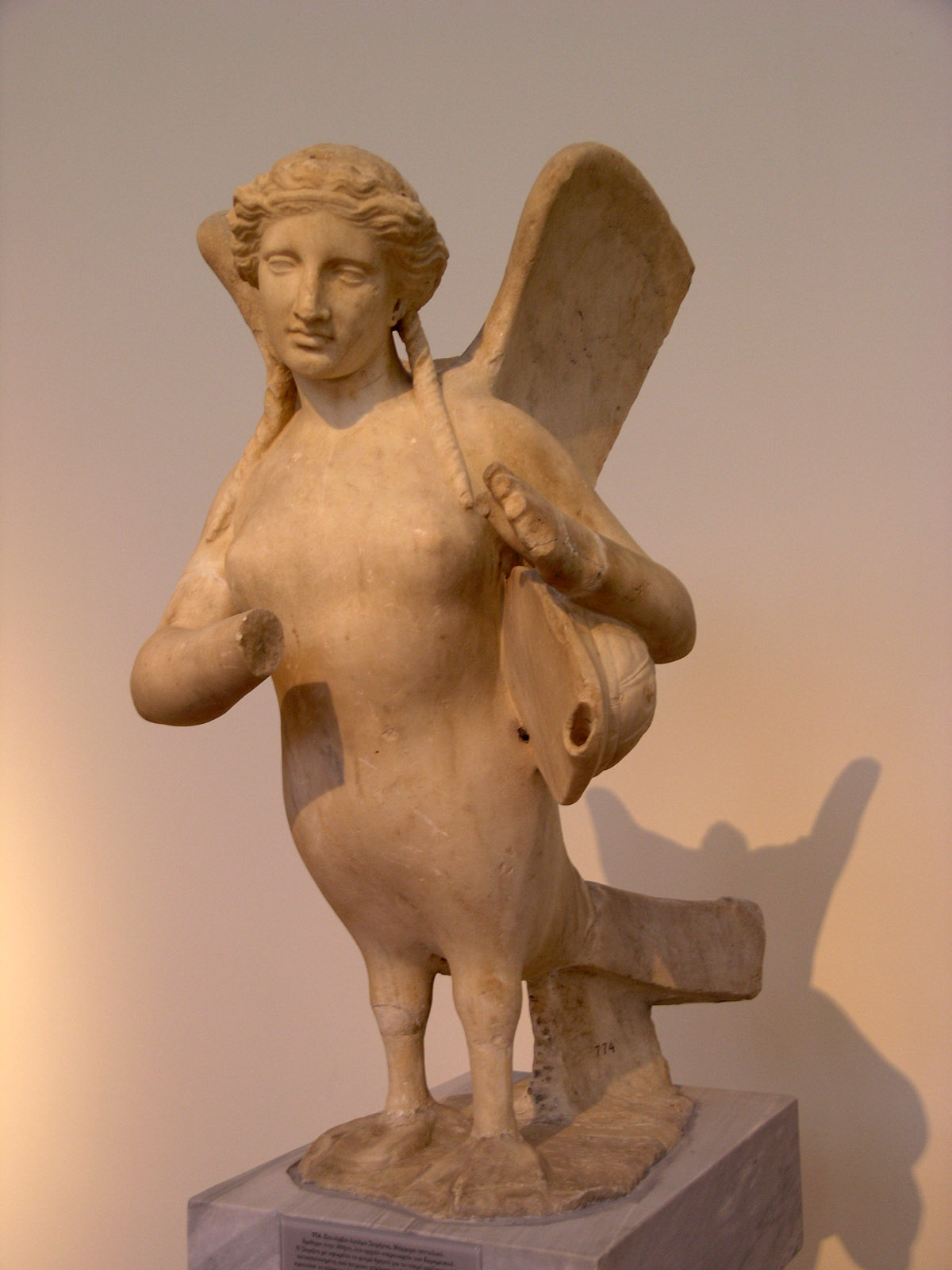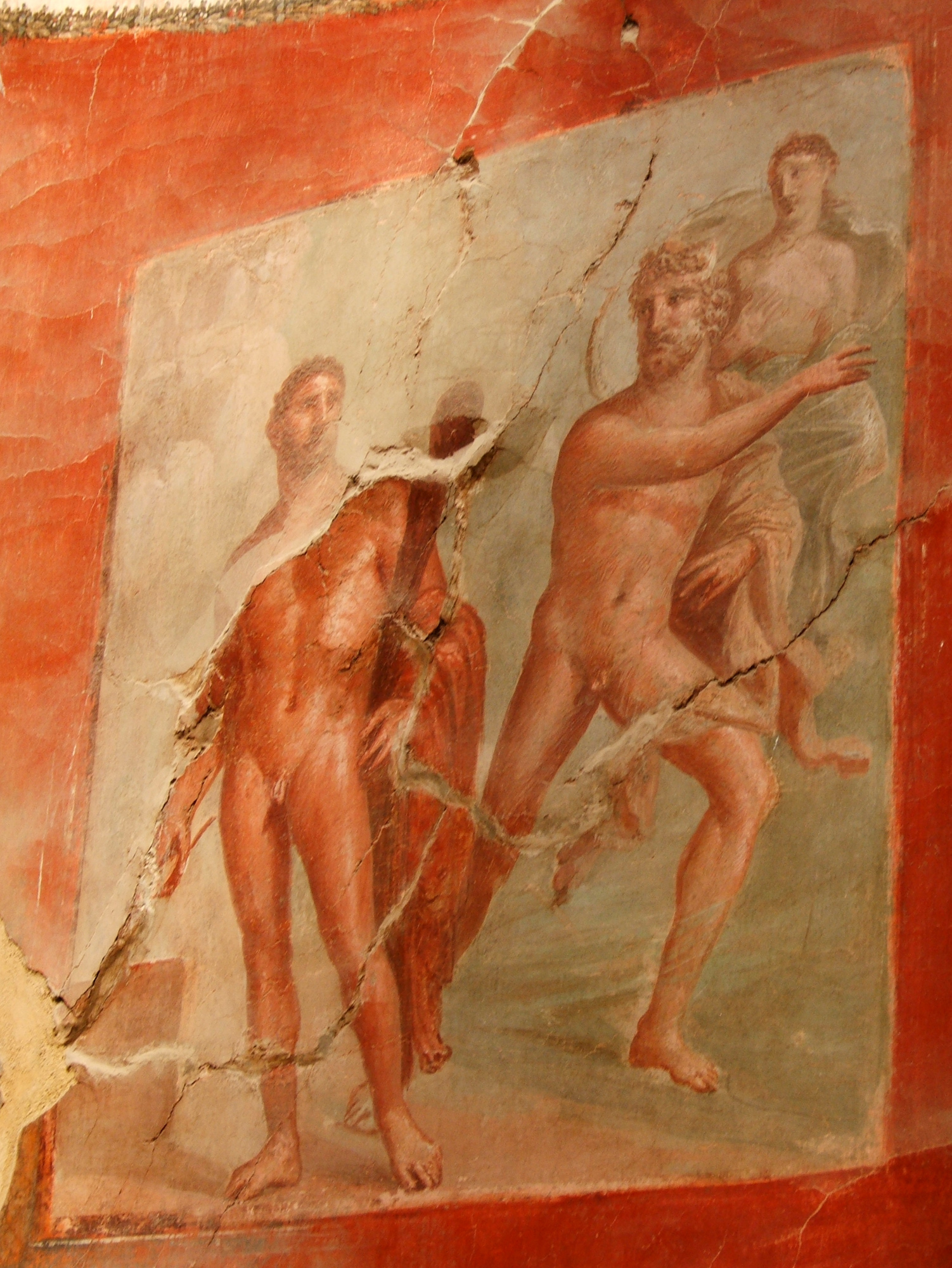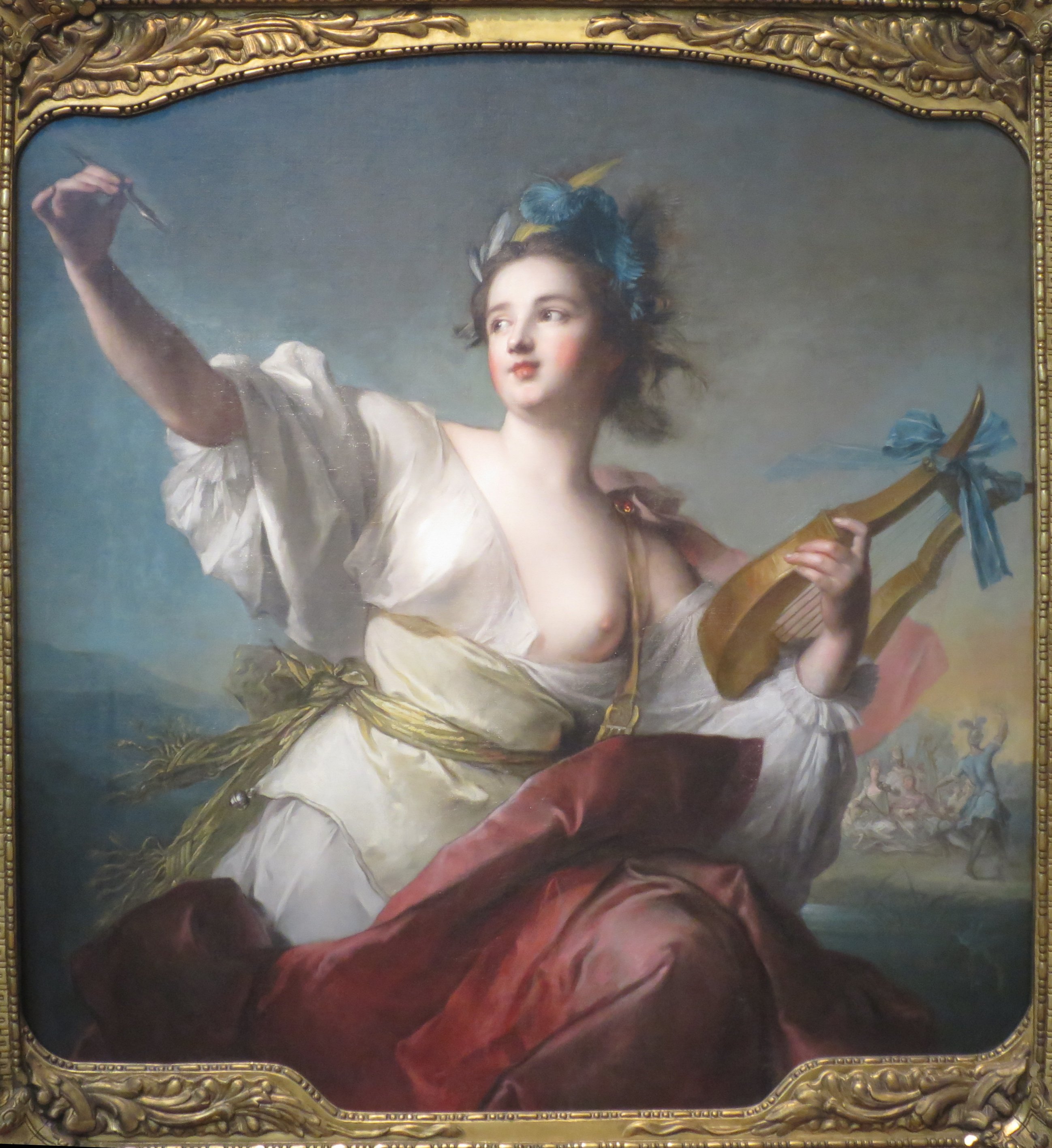|
Aglaonoe
In Greek mythology, Aglaonoe (Ancient Greek: Αγλαονόη) was one of the Sirens. She was the daughter of the river-god Achelous and the Muse Terpsichore. Her sisters were Aglaopheme and Thelxiepeia. Tzetzes, ''Chiliades'' 6.40 Note Reference * John Tzetzes John Tzetzes ( grc-gre, Ἰωάννης Τζέτζης, Iōánnēs Tzétzēs; c. 1110, Constantinople – 1180, Constantinople) was a Byzantine poet and grammarian who is known to have lived at Constantinople in the 12th century. He was able to p ..., ''Book of Histories,'' Book V-VI translated by Konstantinos Ramiotis from the original Greek of T. Kiessling's edition of 1826.Online version at theio.com. {{Greek-deity-stub Sirens (mythology) Children of Achelous Women in Greek mythology ... [...More Info...] [...Related Items...] OR: [Wikipedia] [Google] [Baidu] |
Thelxiepeia (mythology)
In Greek mythology, the sirens (Ancient Greek: singular: ; plural: ) were humanlike beings with alluring voices; they appear in a scene in the Odyssey in which Odysseus saves his crew's lives. Roman poets placed them on some small islands called Sirenum scopuli. In some later, rationalized traditions, the literal geography of the "flowery" island of Anthemoessa, or Anthemusa, is fixed: sometimes on Cape Pelorum and at others in the islands known as the Sirenuse, near Paestum, or in Capreae. All such locations were surrounded by cliffs and rocks. Sirens continued to be used as a symbol for the dangerous temptation embodied by women regularly throughout Christian art of the medieval era. Nomenclature The etymology of the name is contested. Robert S. P. Beekes has suggested a Pre-Greek origin. Others connect the name to σειρά (''seirá'', "rope, cord") and εἴρω (''eírō'', "to tie, join, fasten"), resulting in the meaning "binder, entangler", i.e. one who binds ... [...More Info...] [...Related Items...] OR: [Wikipedia] [Google] [Baidu] |
Siren (mythology)
In Greek mythology, the sirens (Ancient Greek: singular: ; plural: ) were humanlike beings with alluring voices; they appear in a scene in the Odyssey in which Odysseus saves his crew's lives. Roman poets placed them on some small islands called Sirenum scopuli. In some later, rationalized traditions, the literal geography of the "flowery" island of Anthemoessa, or Anthemusa, is fixed: sometimes on Cape Pelorum and at others in the islands known as the Sirenuse, near Paestum, or in Capreae. All such locations were surrounded by cliffs and rocks. Sirens continued to be used as a symbol for the dangerous temptation embodied by women regularly throughout Christian art of the medieval era. Nomenclature The etymology of the name is contested. Robert S. P. Beekes has suggested a Pre-Greek origin. Others connect the name to σειρά (''seirá'', "rope, cord") and εἴρω (''eírō'', "to tie, join, fasten"), resulting in the meaning "binder, entangler", i.e. one who binds ... [...More Info...] [...Related Items...] OR: [Wikipedia] [Google] [Baidu] |
Sirens (mythology)
In Greek mythology, the sirens (Ancient Greek: singular: ; plural: ) were humanlike beings with alluring voices; they appear in a scene in the Odyssey in which Odysseus saves his crew's lives. Roman poets placed them on some small islands called Sirenum scopuli. In some later, rationalized traditions, the literal geography of the "flowery" island of Anthemoessa, or Anthemusa, is fixed: sometimes on Cape Pelorum and at others in the islands known as the Sirenuse, near Paestum, or in Capreae. All such locations were surrounded by cliffs and rocks. Sirens continued to be used as a symbol for the dangerous temptation embodied by women regularly throughout Christian art of the medieval era. Nomenclature The etymology of the name is contested. Robert S. P. Beekes has suggested a Pre-Greek origin. Others connect the name to σειρά (''seirá'', "rope, cord") and εἴρω (''eírō'', "to tie, join, fasten"), resulting in the meaning "binder, entangler", i.e. one who binds ... [...More Info...] [...Related Items...] OR: [Wikipedia] [Google] [Baidu] |
Greek Mythology
A major branch of classical mythology, Greek mythology is the body of myths originally told by the Ancient Greece, ancient Greeks, and a genre of Ancient Greek folklore. These stories concern the Cosmogony, origin and Cosmology#Metaphysical cosmology, nature of the world, the lives and activities of List of Greek mythological figures, deities, Greek hero cult, heroes, and List of Greek mythological creatures, mythological creatures, and the origins and significance of the ancient Greeks' own cult (religious practice), cult and ritual practices. Modern scholars study the myths to shed light on the religious and political institutions of ancient Greece, and to better understand the nature of myth-making itself. The Greek myths were initially propagated in an oral tradition, oral-poetic tradition most likely by Minoan civilization, Minoan and Mycenaean Greece, Mycenaean singers starting in the 18th century BC; eventually the myths of the heroes of the Trojan War and its after ... [...More Info...] [...Related Items...] OR: [Wikipedia] [Google] [Baidu] |
Ancient Greek
Ancient Greek includes the forms of the Greek language used in ancient Greece and the ancient world from around 1500 BC to 300 BC. It is often roughly divided into the following periods: Mycenaean Greek (), Dark Ages (), the Archaic period (), and the Classical period (). Ancient Greek was the language of Homer and of fifth-century Athenian historians, playwrights, and philosophers. It has contributed many words to English vocabulary and has been a standard subject of study in educational institutions of the Western world since the Renaissance. This article primarily contains information about the Epic and Classical periods of the language. From the Hellenistic period (), Ancient Greek was followed by Koine Greek, which is regarded as a separate historical stage, although its earliest form closely resembles Attic Greek and its latest form approaches Medieval Greek. There were several regional dialects of Ancient Greek, of which Attic Greek developed into Koine. Dia ... [...More Info...] [...Related Items...] OR: [Wikipedia] [Google] [Baidu] |
Potamoi
The Potamoi ( grc-gre, Ποταμοί, "Rivers") are the gods of rivers and streams of the earth in Greek mythology. Mythology The river gods were the 3000 sons of the great earth-encircling river Oceanus and his wife Tethys and the brothers of the Oceanids. They were also the fathers of the Naiads. The river gods were depicted in one of three forms: a man-headed bull, a bull-headed man with the body of a serpent-like fish from the waist down, or as a reclining man with an arm resting upon an amphora jug pouring water. Notable river gods include: * Achelous, the god of the Achelous River, the largest river in Greece, who gave his daughter in marriage to Alcmaeon, and was defeated by Heracles in a wrestling contest for the right to marry Deianira. * Alpheus, who fell in love with the nymph Arethusa, pursuing her to Syracuse, where she was transformed into a spring by Artemis. * Asopus, father of many naiads. His daughter Aegina was carried off to the island Aegina by Zeus. A ... [...More Info...] [...Related Items...] OR: [Wikipedia] [Google] [Baidu] |
Achelous
In ancient Greek religion and mythology, Achelous (also Acheloos or Acheloios) (; Ancient Greek: Ἀχελώϊος, and later , ''Akhelôios'') was the god associated with the Achelous River, the largest river in Greece. According to Hesiod, he was the son of the Titans Oceanus and Tethys. He was also said to be the father of the Sirens, several nymphs, and other offspring. Achelous was able to change his shape, and in the form of a bull, he wrestled Heracles for the right to marry Deianeira, but lost. He was also involved in the legend of the Argive hero Alcmaeon. Etymology The name Ἀχελώϊος is possibly pre-Greek, its meaning is not entirely certain. Recent arguments suggest it is Semitic in origin, with the initial Αχ- stemming from the Akkadian ''aḫu'' ("bank of the river"), or ''aḫû'' ("seashore") and the suffix -ελώἴος, from the Akkadian ''illu'' ("watercourse" or "water of the river invading land"). Exact match of the root ''achel-'' can be found ... [...More Info...] [...Related Items...] OR: [Wikipedia] [Google] [Baidu] |
Muses
In ancient Greek religion and mythology, the Muses ( grc, Μοῦσαι, Moûsai, el, Μούσες, Múses) are the inspirational goddesses of literature, science, and the arts. They were considered the source of the knowledge embodied in the poetry, lyric songs, and myths that were related orally for centuries in ancient Greek culture. Melete, Aoede, and Mneme are the original Boeotian Muses, and Calliope, Clio, Erato, Euterpe, Melpomene, Polyhymnia, Terpsichore, Thalia, and Urania are the nine Olympian Muses. In modern figurative usage, a Muse may be a source of artistic inspiration. Etymology The word ''Muses'' ( grc, Μοῦσαι, Moûsai) perhaps came from the o-grade of the Proto-Indo-European root (the basic meaning of which is 'put in mind' in verb formations with transitive function and 'have in mind' in those with intransitive function), or from root ('to tower, mountain') since all the most important cult-centres of the Muses were on mountains or hills. R ... [...More Info...] [...Related Items...] OR: [Wikipedia] [Google] [Baidu] |
Terpsichore
In Greek mythology, Terpsichore (; grc-gre, Τερψιχόρη, "delight in dancing") is one of the nine Muses and goddess of dance and chorus. She lends her name to the word " terpsichorean" which means "of or relating to dance". Appearance Terpsichore is usually depicted sitting down, holding a lyre, accompanying the dancers' choirs with her music. Her name comes from the Greek words τέρπω ("delight") and χoρός ("dance"). Family Tradition portrays Terpsichore as the mother of the Sirens (including Parthenope) by the river-god Achelous. In some accounts, she bore the Thracian king Biston by Ares. By another river-god, Strymon, Terpsichore mothered the Thracian king Rhesus. In popular culture Historical *The British 32-gun frigate commanded by Captain Bowen participated in the Battle of Santa Cruz de Tenerife (1797). Places * Terpsichore is the name of a street in New Orleans' historic neighborhoods of Faubourg Lafayette and the Lower Garden District. It ... [...More Info...] [...Related Items...] OR: [Wikipedia] [Google] [Baidu] |
Aglaope (mythology)
In Greek mythology, Aglaope (), also called Aglaopheme Eustathius, ''Commentaries'' 1709 (Ἀγλαοφήμη) and AglaophonosScholia on Apollonius, 4.892 = Hesiod, '' Ehoiai'' fr. 47 (Ἀγλαόφωνος), is the name of one of the Sirens. Her name means "with lambent voice". Aglaope was attested as a daughter of the river-god Achelous and the Muse MelpomeneApollodorus, Epitom7.18 Hyginus, ''Fabulae'Preface/ref> or her sister Terpsichore or Sterope, daughter of King Porthaon of Calydon. She may have two or one sister(s), namely PeisinoeTzetzes on Lycophron, 7l2 or Molpe, or just ThelxiepeiaTzetzes on Lycophron, 7l2; Eustathius, ''Commentaries'' 1709 or Thelxinoe. Notes References * Apollodorus, ''The Library'' with an English Translation by Sir James George Frazer, F.B.A., F.R.S. in 2 Volumes, Cambridge, MA, Harvard University Press; London, William Heinemann Ltd. 1921. Online version at the Perseus Digital Library. [...More Info...] [...Related Items...] OR: [Wikipedia] [Google] [Baidu] |
John Tzetzes
John Tzetzes ( grc-gre, Ἰωάννης Τζέτζης, Iōánnēs Tzétzēs; c. 1110, Constantinople – 1180, Constantinople) was a Byzantine poet and grammarian who is known to have lived at Constantinople in the 12th century. He was able to preserve much valuable information from ancient Greek literature and scholarship. Biography Tzetzes described himself as pure Greek on his father's side and part Iberian (Georgian) on his mother's side. In his works, Tzetzes states that his grandmother was a relative of the Georgian Bagratid princess Maria of Alania who came to Constantinople with her and later became the second wife of the ''sebastos'' Constantine Keroularios, ''megas droungarios'' and nephew of the patriarch Michael Keroularios. He worked as a secretary to a provincial governor for a time and later began to earn a living by teaching and writing. He was described as vain, seems to have resented any attempt at rivalry, and violently attacked his fellow grammarians. Owin ... [...More Info...] [...Related Items...] OR: [Wikipedia] [Google] [Baidu] |
Children Of Achelous
A child ( : children) is a human being between the stages of birth and puberty, or between the developmental period of infancy and puberty. The legal definition of ''child'' generally refers to a minor, otherwise known as a person younger than the age of majority. Children generally have fewer rights and responsibilities than adults. They are classed as unable to make serious decisions. ''Child'' may also describe a relationship with a parent (such as sons and daughters of any age) or, metaphorically, an authority figure, or signify group membership in a clan, tribe, or religion; it can also signify being strongly affected by a specific time, place, or circumstance, as in "a child of nature" or "a child of the Sixties." Biological, legal and social definitions In the biological sciences, a child is usually defined as a person between birth and puberty, or between the developmental period of infancy and puberty. Legally, the term ''child'' may refer to anyone below th ... [...More Info...] [...Related Items...] OR: [Wikipedia] [Google] [Baidu] |






